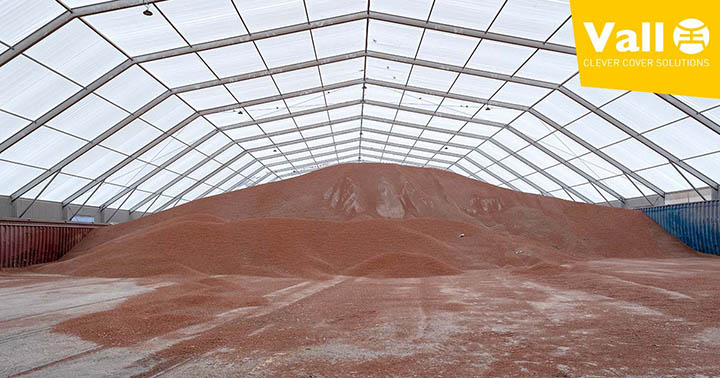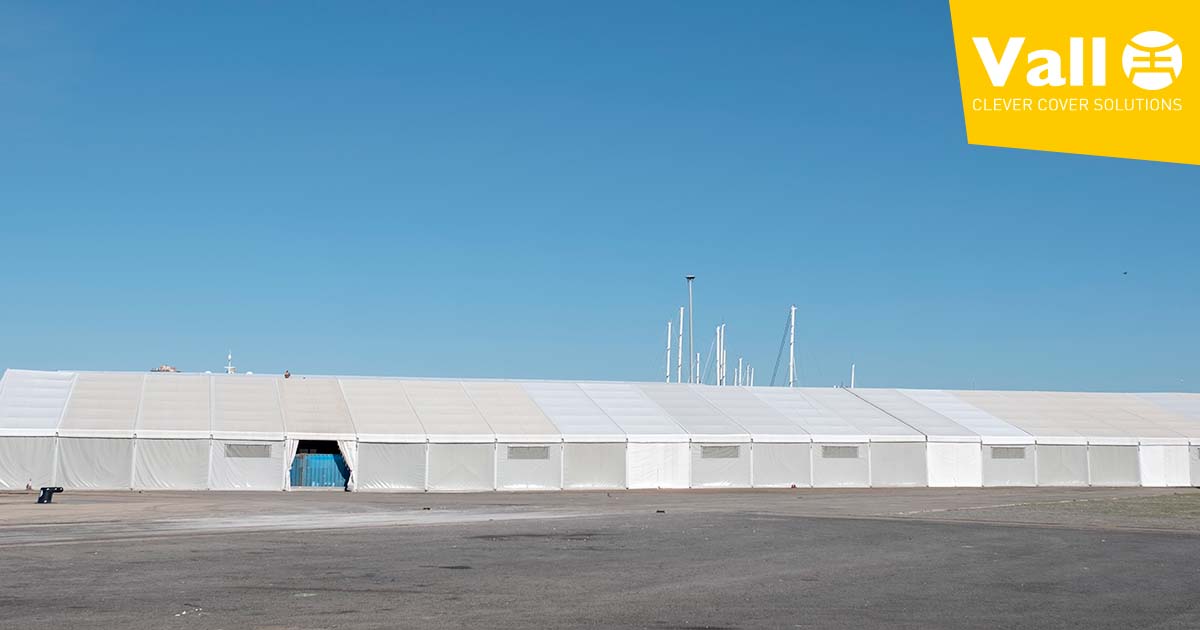This is an atypical year for grain growers, livestock farmers, agri-food companies and grain distributors. The need for grain storage affects practically all countries in one way or another, both exporters and importers. And in many cases, changes in the location of industrial warehouses for grain storage are also proving necessary.
Content Table

Who needs a quick solution to their cereal storage needs in 2023?
Among others:
- Grain traders will need to store their production waiting for the right moment to achieve better prices..
- The agri-food industry needs to circumvent both potential shortages and rising prices by increasing grain storage solutions to supply their production lines.
- Livestock and animal feed producers are in a similar situation to the agri-food industry.
- Distributors, the food logistics sector and intermediaries can face problems when shipping grain internationally, requiring extraordinary grain storage solutions, sometimes in ports or other locations.
- Developing countries and international aid agencies seek to avoid grain shortages in these locations as long as they are available and affordable.
VALL’s modular warehouses for agri-food raw materials are a cost-effective, fast and safe solution to meet these needs. They are industrial warehouses for the storage of cereals, removable, quick to install, prepared to conserve the grain in optimum conditions. They can be placed where and when they are needed and if the need changes or ceases, they can be dismantled just as easily.
The perfect storm that forces the safe storage of grain.
A number of factors have come together this year that make it more necessary than ever to have solutions for the safe storage of grain quickly, without having to wait months for building permits. Reversible solutions that can be used today and can be dispensed with tomorrow.
The purchase or rental of removable industrial buildings made of aluminium or steel makes it possible to weather the «perfect storm» that threatens to push the sector to its limits and to survive.
Drought and cereal production in 2023.
Drought threatens the cereal harvest in 2023 in Europe. Low rainfall in recent months and forecasts for the coming months threaten major EU cereal-producing countries such as France and Spain.
But it is not only in Europe that the problem exists. Argentina had less grain in the last harvest precisely because of a persistent drought. And it is not known what the conditions will be for the next sowing, which is still a few months away.
War in Ukraine.
The war on Ukrainian territory has prevented a large part of the usual harvest in one of the countries that until last year supplied much of the world with food. Trade sanctions against Russia also prevent grain from leaving the country for the EU and other countries.
This means that the agri-food industry needs to secure the purchase and storage of grain to operate all year round, without being able to choose a constant supply from these origins.
Geopolitical alliances and cereal production.
Geopolitical alliances threaten to disrupt global grain trade and supply. China, one of the world’s largest grain producers, continues to export its production. But there are doubts about its alliances and whether it will take a clear position in the Ukraine-Russia conflict that will change its clientele. Moreover, it already dominates a large part of African ports. And the increase in its domestic consumption means that it expects less grain to be exported.
If this is accentuated in the coming months, the installation of industrial warehouses for grain storage may have to change location in many cases, choosing other logistics ports than the current ones.
Lower yields due to weather and higher fertiliser prices and increased Chinese demand for cereals.
This means lower cereal production in places like Europe or Argentina. Even in those that have increased the area of land under cultivation, such as Canada or Australia, this may not be reflected in higher production because of lower crop yields.
This implies that those who need cereals, such as the bread industry, among others, prefer to take precautions and increase their cereal storage capacity.
Bottlenecks in logistics and international transport can affect grain trade.
Since the pandemic, bottlenecks in international logistics have become an obvious problem affecting all sectors. This also applies to the international grain trade. As a perishable product that requires strict storage conditions for its preservation and safety, it cannot be left just anywhere and in any way.
Increase of countries at risk of destabilisation.
These may threaten transport routes and reduce global food production to be compensated by increased cereal consumption.

Industrial warehouses for grain storage: the solution for the sector
VALL’s steel or aluminium removable industrial buildings for grain storage are the solution for 2023, an atypical year, due to their advantages in the current circumstances.
- Warehouses resistant to inclement weather and with a high degree of water tightness and insulation to guarantee optimum grain conservation.
- A cost-effective solution with options to buy or rent removable industrial buildings.
- Quick solution that can be operational in a short time to avoid delays and provide an almost immediate response to cereal storage needs.
- Adaptable solution with low investment that you can install where it suits you and dispense with when you no longer need it.
- Facilities to install in the location you need all over the world.









